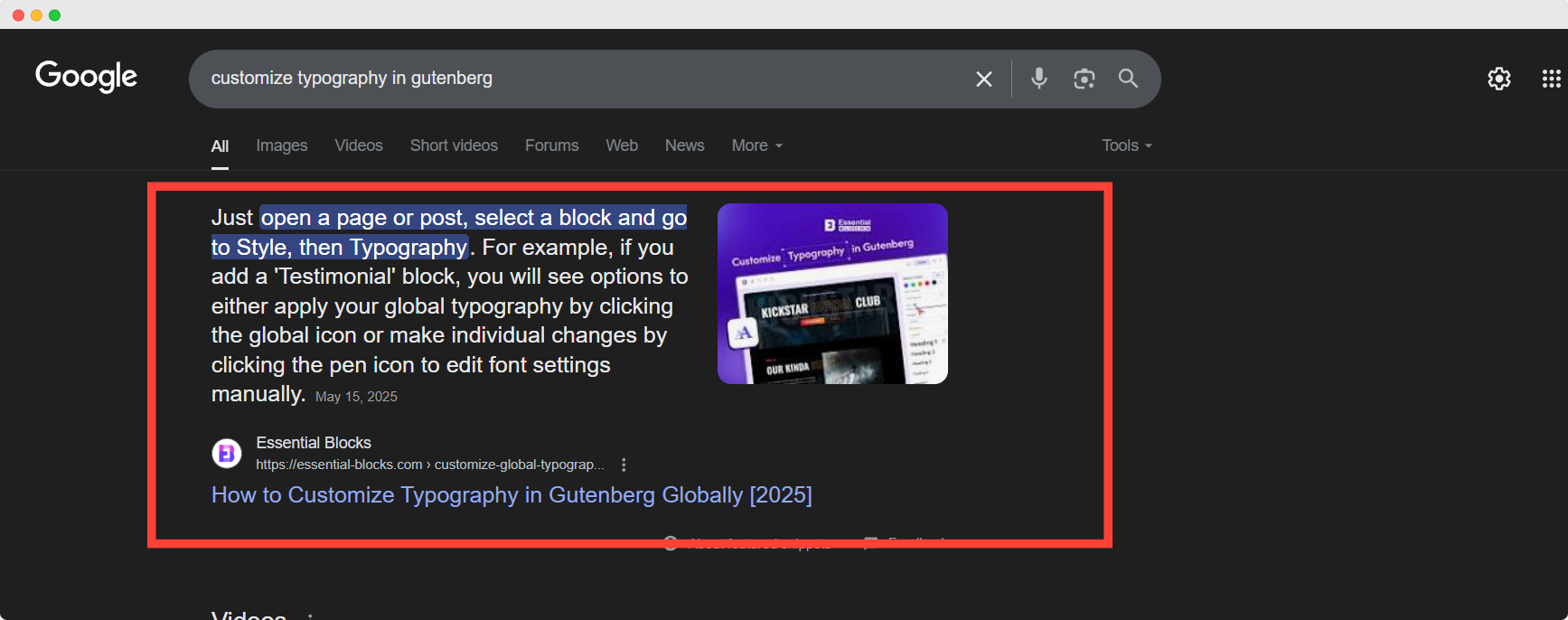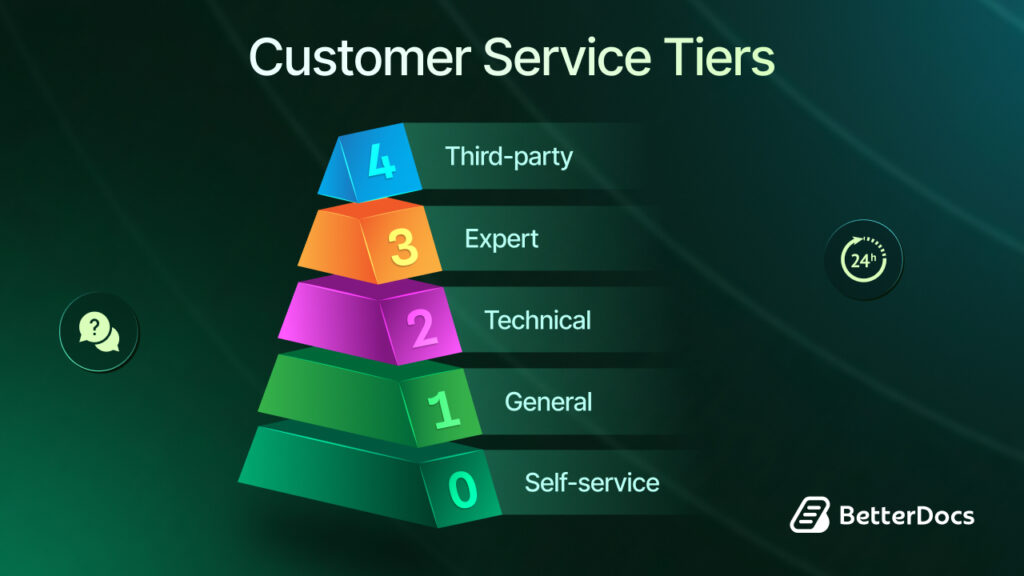Today, businesses are constantly seeking ways to enhance their online presence while providing exceptional customer support. One powerful solution that accomplishes both goals is implementing a well-structured knowledge base. More than just a repository of information, a strategically designed knowledge base SEO can significantly improve website structure and overall performance. So, how do knowledge bases improve site structure & SEO? Let’s explore.

Understanding Knowledge Base SEO: Why It Matters
A knowledge base is essentially a centralized library of information about your products, services, or industry that helps users find answers to their questions quickly and independently. When optimized correctly, it becomes a powerful SEO asset that can drive organic traffic, improve user experience, and establish your brand as an authoritative source in your field.
Knowledge base SEO involves optimizing your help center or documentation site to rank higher in search engine results pages (SERPs). As tawk.to explains, search engines use bots to crawl through your site and follow the link structure to determine your article’s placement in search results.
The connection between knowledge bases and SEO success lies in their ability to create comprehensive, valuable content that directly addresses user queries. According to Helplook, one of the key advantages is helping existing customers find answers quickly while also attracting new prospects through search engines.
This dual benefit occurs because knowledge bases naturally align with how people search for information online. Users often search for specific problems or questions, and a well-optimized knowledge base can provide detailed, authoritative answers that search engines love to showcase.
How Organized Knowledge Base Benefits Your Site Structure
A well-organized knowledge base does more than just answer user questions. It strengthens your entire site structure. In this section, we will explore how a structured knowledge base streamlines navigation, enhances SEO and improves user experience. Discover the key ways it adds value to your website’s overall architecture.
Hierarchical Organization And Information Architecture
A knowledge base forces you to think systematically about your content organization. This hierarchical structure benefits SEO by creating clear topic clusters and content relationships that search engines can easily understand and navigate.
When you organize content into logical categories and subcategories, you are essentially creating a roadmap for both users and search engine crawlers. This clear structure helps search engines better understand the context and relationships between different pieces of content on your site.
URL Structure Optimization
Knowledge bases typically use clean, descriptive URL structures that include relevant keywords. Instead of generic URLs, you get semantic paths like,
/help/billing/payment-methods or /guides/getting-started/account-setupThese descriptive URLs provide immediate context to both users and search engines about the page content. Clean and keyword-rich URLs improve crawlability and also encourage clicks when they appear in search results.
Enables Rich Results with Schema Markup
An organized knowledge base makes it easier to implement structured data like FAQ or How-To schema, allowing your content to appear as rich snippets in search results. This improves visibility, enhances click-through rates, and helps users get quick answers directly from SERPs. It also signals to search engines that your content is well-structured and trustworthy.
Navigation Improvements
A well-structured knowledge base improves overall site navigation by providing multiple pathways to content. Users can browse by category, search for specific topics, or follow related article suggestions. This improved navigation reduces bounce rates and increases the likelihood of users finding exactly what they need.
Internal Linking Opportunities
Knowledge bases create natural opportunities for internal linking. HubSpot recommends using internal links within your knowledge base to link to other related pieces, connect to products or services across your site, and create pathways from other pages to your knowledge base content.
Many reports show that sites with strong internal linking structures see a significant increase in page views. Internal linking also distributes page authority throughout your site, potentially boosting the rankings of connected pages.
Structured Knowledge Base: How It Benefits Your Website SEO
A structured knowledge base is not just for user support; it can significantly boost your website’s SEO performance. In this section, we will break down how an optimized knowledge base helps search engines crawl your site more efficiently, increases keyword visibility, and drives organic traffic. Learn how it becomes a powerful tool for improving search rankings.
🎯 Content Depth And Topical Authority
Knowledge bases excel at creating comprehensive, in-depth content around specific topics. Browndog Agency notes that knowledge bases are excellent tools for building large libraries of relevant content and developing topical authority, both critical elements for SEO success.
When you consistently publish detailed, helpful content around your industry topics, search engines begin to recognize your site as an authoritative source. This topical authority can improve rankings not just for your knowledge base articles, but for your entire website.
🎯 Long-tail Keyword Opportunities
Knowledge base articles naturally target long-tail keywords because they address specific questions and problems. These longer, more specific search queries often have less competition and higher conversion potential than broad, generic keywords.
For example, instead of competing for the broad term “email marketing,” a knowledge base article might target “how to set up automated email sequences for new subscribers”—a much more specific query with clearer user intent.
🎯 Featured Snippet Potential

Knowledge base content is ideal for capturing featured snippets in search results. The question-and-answer format, step-by-step guides, and comprehensive explanations that characterize good knowledge base content align perfectly with the types of content Google often selects for featured snippets.
🎯 Reduced Bounce Rates And Improved Dwell Time

According to Zendesk, optimizing your knowledge base helps customers find information fast, rather than making them wander through pages of Google results. When users find exactly what they are looking for on your site, they are more likely to stay longer and explore additional content, which increases dwell time and reduces bounce rates. This improved user engagement sends positive signals to search engines about your content quality and relevance, potentially boosting your rankings across the board.
🎯 Site Crawlability And Indexability
A well-built knowledge base can play a crucial role in enhancing your site’s technical SEO. It improves your site’s overall crawlability and leads to stronger search engine performance. The logical hierarchy, clear navigation, and extensive internal linking make it easier for search engine bots to discover and index your content.
Zendesk emphasizes that internal links improve the crawlability and indexability of your site, allowing search engines to better understand your content structure and relationships.
🎯 Schema Markup Opportunities
Knowledge bases provide excellent opportunities to implement structured data markup. You can use the FAQ schema for question-and-answer content, the Article schema for guides and tutorials, and the HowTo schema for step-by-step instructions.
Google’s SEO documentation explains that valid structured data makes pages eligible for special features in search results, including review stars, carousels, and enhanced snippets.
🎯 Page Speed And Performance Benefits
Knowledge bases often feature clean, text-focused designs that load quickly. Fast-loading pages are a crucial ranking factor, and the typically lightweight nature of knowledge-base pages can contribute to improved site-wide performance metrics.
🎯 Mobile Optimization

Modern knowledge bases are designed with mobile-first principles, ensuring that users can easily access information on any device. With mobile-first indexing, having a mobile-optimized knowledge base is essential for maintaining good search visibility.
Content Strategy for Knowledge Base SEO
An effective content strategy is key to unlocking the full SEO potential of your knowledge base. In this section, we will explore proven strategies like keyword optimization, internal linking, and content structuring tailored for knowledge-based articles. Discover how the right approach can drive traffic and improve search visibility.
Keyword Research And Content Planning
Effective knowledge base SEO starts with understanding what your audience is searching for. Use keyword research tools to identify common questions, problems, and topics related to your industry or product.
Look for opportunities to target informational keywords that align with your customers’ needs. Tools like Google’s “People Also Ask” section and customer support tickets can provide valuable insights into content opportunities.
Creating Comprehensive, Valuable Content
Zoho’s blog emphasizes that a well-optimized knowledge base allows customers to find helpful articles and support resources using search engines, enabling them to quickly and efficiently find the information they need.
Focus on creating content that thoroughly addresses user questions. Don’t just provide basic answers—offer comprehensive guides that cover related topics and potential follow-up questions.
Content Freshness And Updates
Keep your knowledge base content current and accurate. Regular updates signal to search engines that your content is maintained and relevant. Set up a review schedule to ensure information stays accurate and helpful.
User Intent Alignment
Ensure your knowledge base content aligns with different types of user intent—informational, navigational, and transactional. Create content that serves users at various stages of their journey, from initial awareness to detailed implementation.
Best Practices to Optimize Website Knowledge Base for SEO
Implementing your knowledge base effectively is just as important as creating great content. In this section, we will cover best practices for setting up, organizing, and maintaining your knowledge base to maximize SEO and user experience. Learn the practical steps that ensure long-term success and visibility.
Using Keyword-Optimized Title
Use a proper title for the article/documentation you are writing for your knowledge base. Make sure that the title includes the focus keyword you picked.
Setting Up Proper URL Structures
Use clean, descriptive URLs that include relevant keywords. Implement a logical hierarchy in your URL structure that reflects your content organization. For example:
- /help/account/password-reset
- /guides/integration/api-setup
- /troubleshooting/billing/payment-failed
Adding Meta Description
Do not skip the meta description for the documentation you are adding to your website’s knowledge base. Keep the meta description short and relevant, with the focus keyword added in the description.
Placing H2/H3 Subheadings As Required
If you are writing how-to tutorials or comprehensive documentation answering the FAQ for your knowledge base, you can divide it into sections with proper H2 or H3 tags. With intent-based H2 or H3 phrases, help improve your site
Optimizing Internal Linking
Create a robust internal linking strategy that connects related articles and guides users through logical content progressions. Use descriptive anchor text that provides context about the linked content.
Creating Effective Categorization
Organize content into clear, intuitive categories that make sense to your users. Use consistent naming conventions and avoid creating categories that are too broad or too narrow.
Ensuring Mobile-Responsiveness
Do not neglect your mobile users. Ensure your knowledge base is fully responsive and provides an excellent experience on mobile devices. Test navigation, search functionality, and content readability across different screen sizes.
Measuring And Monitoring Performance
Track key metrics like organic traffic to knowledge base pages, user engagement metrics, search rankings for target keywords, and conversion rates from knowledge base visitors. Use tools like Google Analytics and Google Search Console to monitor performance and identify optimization opportunities.
Knowledge Base SEO: Common Mistakes to Avoid
Even a well-intentioned knowledge base can fall short if common mistakes go unchecked. This section will highlight the most frequent errors that can hurt your SEO and user experience, from poor structure to lack of updates. Learn what to avoid to keep your knowledge base effective and optimized.
👉 Poor Information Architecture: Avoid creating confusing category structures or burying important information too deep in the hierarchy. Users should be able to find what they need within a few clicks.
👉 Duplicate Content Issues: Be careful not to create multiple articles covering the same topic. Consolidate similar content and use canonical tags when appropriate to avoid duplicate content penalties.
👉 Inadequate Keyword Optimization: Do not stuff keywords, but do ensure your content naturally incorporates relevant search terms. Focus on creating valuable content that naturally aligns with user search queries.
Essential Tools to Boost Your Knowledge Base SEO
Optimizing your knowledge base for SEO does not have to be complicated. With the right tools, you can streamline the process and ensure your content is fully optimized for both search engines and users. Here are some top tools to help you get started:
- Yoast SEO / Rank Math for On-Page SEO Optimization in WordPress
Both Yoast SEO and Rank Math are popular WordPress plugins that help optimize your knowledge base articles with meta titles, descriptions, keyword density analysis, schema markup, and internal linking suggestions. These tools ensure your content is search engine-friendly right from the start.
💡 Bonus: Create WordPress Knowledge Base with Absolute Ease
If you are using a WordPress website and building your knowledge base, you can use tools like BetterDocs. It is a popular WordPress knowledge base plugin that allows you to create a structured knowledge base with an array of powerful AI features.
- Google Search Console for Performance & Indexing Insights
This free tool from Google lets you monitor how your knowledge base content performs in search results. You can identify indexing issues, check search queries, and discover which articles get the most impressions and clicks.
- Screaming Frog SEO Spider for Technical SEO & Site Structure Analysis
Use Screaming Frog to crawl your entire site and analyze how well your knowledge base is structured. This tool helps uncover broken links, duplicate content, missing metadata, and overall internal linking patterns, which are crucial for strong Knowledge Base SEO.
- Ahrefs / Semrush for Keyword Research & SEO Performance Tracking
For deeper keyword research and content performance tracking, tools like Ahrefs and Semrush are invaluable. These platforms help you discover the right keywords to target, track rankings, and identify backlink opportunities for your knowledge base content.
Future Trends And Considerations for Creating Your Website Knowledge Base
As technology and user behavior evolve, so do knowledge-based strategies and SEO practices. In this section, we will explore emerging trends like AI integration, voice search optimization, and personalized support experiences. Stay ahead by understanding what is next for knowledge base SEO and how to prepare for it.
AI And Voice Search Optimization
As voice search becomes more prevalent, optimize your knowledge base content for conversational queries. Focus on natural language and question-based content that aligns with how people speak rather than type.
Entity-Based SEO
Search Engine Land discusses how entity-based SEO and knowledge graphs are becoming increasingly important. Select primary entities for your pages and use them as natural anchors for internal linking across your site.
User Behavior Evolution
Stay aware of changing user behavior and search patterns. As user expectations evolve, ensure your knowledge base continues to meet their needs for quick, accurate, and comprehensive information.
Improve Customer Support & Give Your Site a Comprehensive SEO Foundation
A well-implemented knowledge base serves as a powerful dual-purpose tool that enhances customer support while significantly boosting your SEO performance. Remember that building an effective knowledge base for SEO is an ongoing process. Focus on consistently creating valuable content that serves your users’ needs, and the SEO benefits will naturally follow.
Was this blog helpful to you? Feel free to share your thoughts in our Facebook Community. Also, subscribe to our blogs to get more blogs like this.




